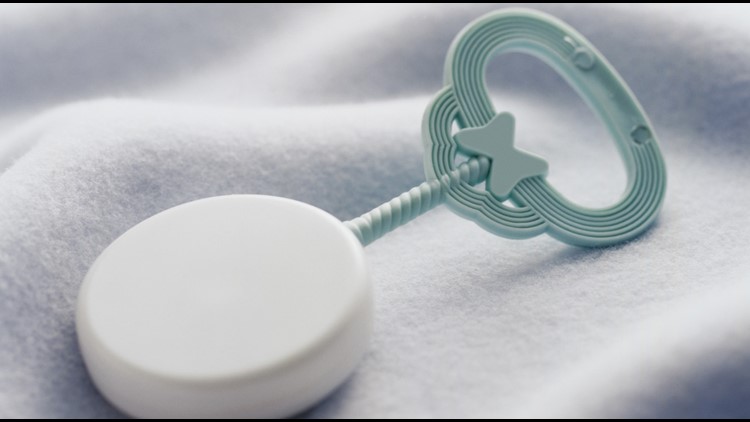INDIANAPOLIS — Indiana's infant mortality rate fell to the lowest level in state history in 2019. The statewide infant mortality rate fell from 6.8 per 1,000 live births in 2018 to 6.5 in 2019, according to preliminary data from the Indiana Department of Health.
“We are committed to ensuring the best chance for a healthy pregnancy and a strong start to life for Indiana’s newborns,” Gov. Eric Holcomb said. “While we celebrate these results, our work is far from finished, and we won’t rest as we work to protect our youngest.”
The mortality rate among Black infants fell from 13 in 2018 to 11 in 2019. A total of 527 Indiana babies died before their first birthdays in 2019, down from 559 in 2018 and 602 in 2017.
This third year of decline has the infant mortality rate in Indiana at the lowest level since records began in 1900.
“We’ve known all along that reducing Indiana’s infant mortality rate would take time and partnerships, and it’s gratifying to see that work pay off,” said State Health Commissioner Kris Box, M.D., FACOG. “We must continue to encourage early prenatal care and promote safe sleep practices so that we can celebrate more first birthdays in Indiana.”
Gov. Holcomb made reducing the state's infant mortality rate a priority and created a program to connect expectant or new mothers to health, social and other services they need via a navigator who provides personalized support, resources and referrals through the first year of their babies’ lives.
The program will reach more than 20 counties this year and 25 more in 2021.
Other steps the state has taken:
- Developing a Levels of Care system for birthing hospitals to ensure that women deliver their babies at the facility that best meets their needs
- Adopting obstetrical safety bundles through the Alliance for Innovation on Maternal Health
- Allocating more than $27 million in Safety PIN grants since 2017 to community partners for both novel and evidence-based programs to reduce infant mortality and improve the health and well-being of mothers and babies
- Requiring prenatal care providers to conduct a verbal screening for substance use disorder for all pregnant women so they can receive services that improve their health and that of their babies
- Establishing a committee to review every maternal death in the state, with the goal of understanding the causes and developing strategies to prevent future cases
Expectant women and new mothers can call the MOMS Helpline at 1-844-MCH-MOMS (1-844-624-6667) to find resources available in their area.



